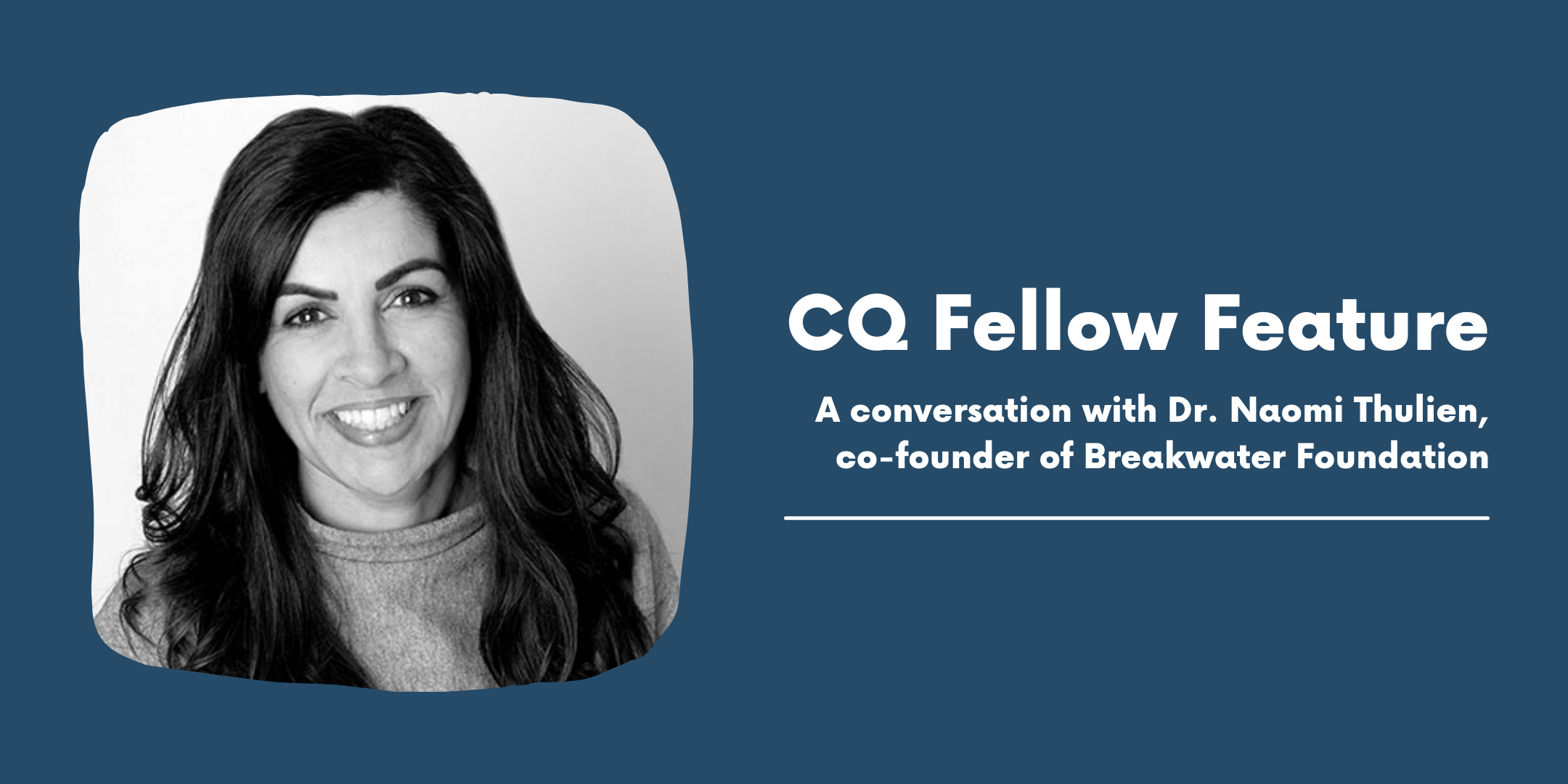In May 2021, CQ Fellow Dr. Naomi Thulien co-founded Breakwater Foundation, a non-profit organisation dedicated to providing health care, rent subsidies, and education bursaries to young women who have experienced homelessness. Naomi practices clinically at the Breakwater Foundation clinic and Covenant House Toronto – Canada’s largest agency for young people with current and past experiences of homelessness and sex trafficking.
We asked Naomi about what inspired her to establish Breakwater Foundation, how her experiences as a critical qualitative methodologist have influenced her work at the Foundation, and what she hopes to accomplish with this initiative.
What led you to co-founding the Breakwater Foundation?
The seeds for this idea were planted in 2015, when I was a PhD student engaged in a critical ethnographic study with nine young people who had recently left the shelter system and moved into market rent housing in Toronto. My aim was to understand what it was like for them to attain meaningful social and economic inclusion.
Over the course of ten months, I witnessed how challenging it was to exit homelessness without sufficient social and economic supports. I gained a deeper understanding of the cyclical nature of poverty, and a greater appreciation of the link between poverty and education. All the young people came from low-income households (almost always led by a single mother), and their lack of post-secondary education or training meant minimum wage jobs and poverty-level incomes.
I also learned about the relationship between environment and identity; how the environments we have access to signal our worth and position in society. For example, study participants resisted utilizing shelter-based supports (including healthcare) as those environments reminded them of their old identities as homeless youth. Still, the neighbourhoods they could afford and the places they worked reinforced their low socioeconomic position.
In May 2021, my husband and I established the Breakwater Foundation to act on some of the inequities I saw during my field work. This is one small way of honouring what I learned from the study participants.
How do you see critical qualitative methodology in relation to your work with the Foundation?
Critical qualitative methodology provides me the glasses to see and the language to speak about the social structural inequities and power imbalances that cause and perpetuate youth homelessness. The formation of our Foundation was an outcome of utilizing a critical lens.
One important critique of critical qualitative methodologies is that they can be too theoretical, not sufficiently rooted in material circumstances, and primarily represent the interests of the intellectual elite. Critical qualitative methodology should prioritize knowing-with rather than knowing-about and challenge us to (re)consider what we do with the knowledge we co-create with our study participants.
What would you like the CQ community to know about Breakwater Foundation?
Our Foundation provides comprehensive healthcare (deliberately outside the homelessness sector), as well as rent subsidies and education bursaries for up to five years to female-identified youth who have experienced homelessness. We are committed to giving 100% of Foundation funds to benefit the youth we serve (there are no salaried positions).
Our Foundation is based on the following core values:
- We believe in relationship-based philanthropy – journeying alongside the young women we serve. This means keeping our programs at a scale that permits focus, higher input, and higher impact.
- We believe that equity in health and well-being is most effectively addressed by tackling social and economic factors.
- We believe that meaning and purpose are crucial components of societal inclusion.
What do you hope and imagine for the Foundation’s impact and legacy?
I hope graduates of our Breakwater Foundation Scholars program (rent subsidies and education bursaries) can positively change the trajectory of their lives and the lives of their children. I imagine graduates of this program becoming emerging leaders and inspiring new Foundation Scholars…perhaps even starting a Foundation of their own one day.

